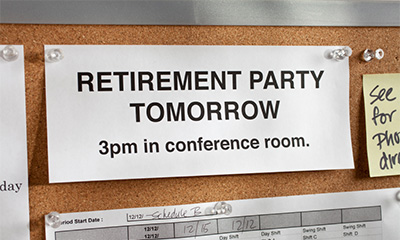In last week’s segment, I briefly mentioned the idea of requiring your broker to adhere to a fiduciary standard and not the suitability standard most now follow.
This issue is so important to investors – especially to retired investors – that I want to spend more time on it.
To begin, all brokers or advisors, whatever they call themselves, should be required to adhere to the higher fiduciary standard that puts your best interests first. And as I said last week, make them do it in writing.
The White House’s Council of Economic Advisers reported that the conflict of interest the SEC has allowed to exist between advisors and clients costs investors $17 billion a year in retirement accounts alone.
No one has a clue how much all the taxable accounts would add to that figure, but $17 billion is a full 1% annual loss in returns for retirement accounts.
Remember, the S&P has returned only 7% over the long run. That 1% is a big chunk of 7%.
Now, why some investors get the fiduciary standard and some don’t is a mystery to me. But this is a totally unacceptable situation and it has to be fixed.
The current suitability standard allows a broker to sell you a high-commission product when a low-commission product would do the same job and cost you a lot less.
[promo_box]
Adding it to your portfolio could soon bring you the retirement of your dreams.
[/promo_box]
According to a FINRA study, 88% of brokers and advisors are dually registered and can switch back and forth between a fiduciary and a suitability standard. And they do not have to disclose this to you. You have no idea which standard they are applying to you.
And, as you might guess, the investment industry is fighting any change to the status quo.
And guess the first place politicians go looking for campaign contributions. Yup, Wall Street!
This conflict should never have existed and I seriously doubt our government has the backbone to face down the Street. So I wouldn’t expect any changes.
My advice to you is to call your broker and ask which standard he or she adheres to. I’m pretty sure, except in rare cases, it is the suitability standard.
Then ask if he or she will work under a fiduciary standard only and if he or she will put it in writing.
If you get a smoke screen, hit the floor running and don’t stop until you find one who will put it in writing.
I know I am not making any friends in the investment business with this position, but this is the right thing to do.
Good investing,
Steve

